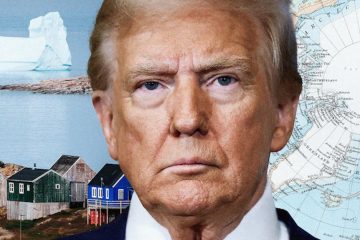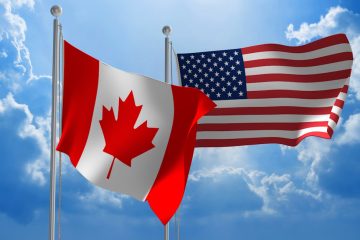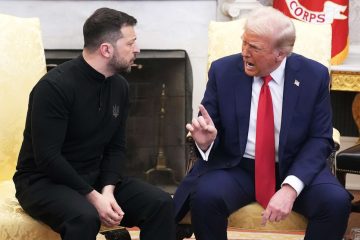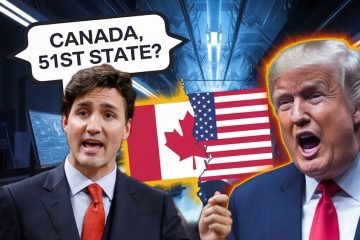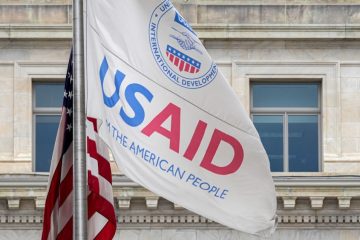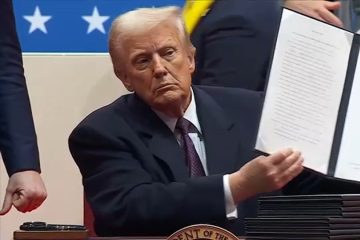Donald Trump’s hush-money trial
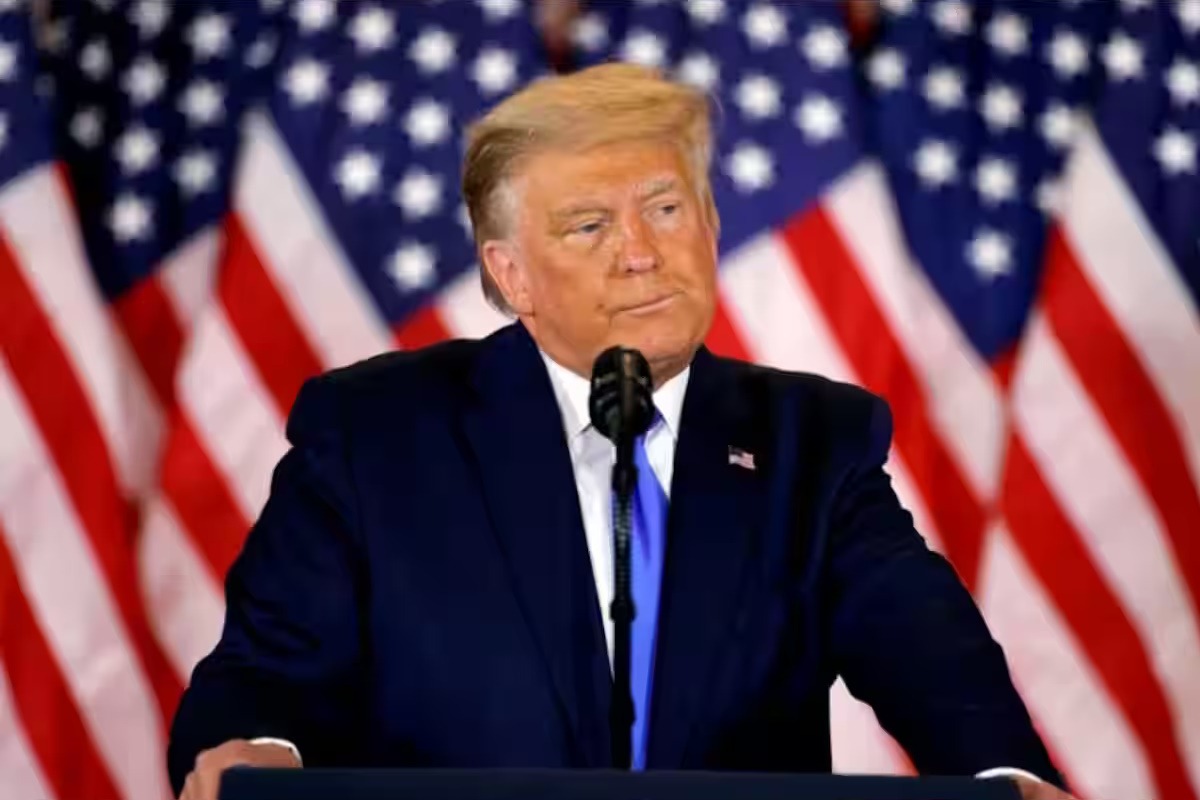
The trial involving hush-money payments made by Donald Trump captivated the nation, a gripping and intense spectacle featuring a former U.S. president determined to regain the presidency. The hush-money case brought against Donald Trump by Manhattan prosecutors lasted for over a month and involved the testimony of more than 20 witnesses.
On Thursday, a 12-person jury delivered a verdict, finding the former president guilty on 34 counts of falsifying business records. These records were related to a hush-money payment made to porn star Stormy Daniels just before the 2016 election. Daniels claimed to have had a sexual encounter with Trump in 2006, but he denied it. Presenting a collection of pivotal moments from the trial.
Prosecutors claimed that Trump had violated the law in order to conceal a sex scandal, but in their opening statement, they presented the case as a narrative centered around a conspiracy to undermine the integrity of the 2016 election. “It was election fraud, plain and straightforward,” stated prosecutor Matthew Colangelo to the jurors. They aimed to simplify a complex narrative and cast of characters into a story about a politician deceiving voters, despite the absence of any actual election fraud charges in the case. It was a bold move, and it definitely worked out.
A gag order has been issued by Justice Juan Merchan, the presiding judge, which prohibits the former president from making any public statements regarding potential witnesses. Trump criticized the order, claiming it unjustly restricted his political speech, and was penalized with hefty fines for violating it. “In the future, this court will need to take into account the possibility of a jail sanction,” Merchan informed Trump. The judge’s warning of potential jail time for violating a gag order was not the first, but the tense exchange between the two added an element of suspense to the proceedings.
Daniels recounted to the jurors an evening in 2006 at a luxurious Lake Tahoe hotel suite, where she claims to have playfully swatted Trump with a rolled-up magazine and spent the night with him. The encounter was described as “brief” by her, however, Daniels’s testimony was anything but. Jurors were presented with details about the former president’s luxurious two-piece pajamas, their uncomfortable small talk, and her tendency to gaze at the ceiling during intimate moments. As she addressed the jury just a few meters away, Trump’s muttered obscenities could be faintly heard from the defense table. The legal team representing Trump argued that Daniels’s testimony was biased and requested a mistrial, but their request was ultimately denied.
Former tabloid mogul David Pecker provided jurors with a glimpse into the murky world of transactional journalism. The gentle 72-year-old previously published the National Enquirer, a tabloid known for its sensational stories. Pecker guided the jurors through his August 2015 Trump Tower meeting with Trump, where he expressed his commitment to assisting his friend in obtaining damaging information about the presidential contender. “I will serve as your eyes and ears,” he assured Trump. Pecker’s business with Trump didn’t provide clear evidence of criminal activity, but it had the hallmarks of a potential conspiracy.
Hope Hicks, the former White House communications director, recounted the intense response of the Trump campaign when the notorious “Access Hollywood” tape came to light. This tape was cited by prosecutors as the political motivation behind the hush-money scheme involving Stormy Daniels. However, she also mentioned that Trump expressed concerns about issues that hit closer to home. “He expressed his worry about how his wife would perceive it,” Hicks commented on a Wall Street Journal article discussing a separate payment made to former Playboy centerfold model Karen McDougal. “And he requested that I ensure the newspapers were not delivered to their residence that morning.”
Michael Cohen, a former fixer for Trump, played a crucial role as a key witness for the prosecution. With his firsthand knowledge of Trump’s motives and actions, Cohen provided valuable insights. During his testimony, he revealed that Trump had expressed concern about the potential fallout if Daniels’s allegations were made public, emphasizing the negative impact it could have on the campaign. “Just handle it,” Cohen recalled Trump instructing him. Cohen mentioned that Trump seemed relieved when he found out that Cohen would personally cover the expenses for Daniels. In addition, Cohen asserted that prior to Trump’s inauguration, he and then-Trump Organization chief financial officer Allen Weisselberg had a meeting with the president-elect to inform him that Cohen would receive reimbursement in monthly installments categorized as legal services. “He gave it his approval,” Cohen informed the jury.
However, questions were raised about the credibility of Cohen, who had been convicted of lying. During the cross-examination, defense lawyer Todd Blanche seemed to unsettle Cohen by questioning him about a phone conversation he claimed to have had with Trump regarding the payment to Daniels. Blanche eagerly seized upon text messages that indicated the phone call in question was actually between Cohen and Trump’s bodyguard, Keith Schiller, to address a teenage prank caller who had been bothering Cohen. It was a moment reminiscent of a Perry Mason episode, which had the potential to support the defense’s argument that Cohen was a storyteller who fabricated conversations with Trump.
Blanche’s closing argument skillfully targeted the central accusation of the prosecution’s case: the assertion that Trump manipulated records. According to him, there is no falsehood or deception in categorizing the payments to Cohen as legitimate legal services. He strongly challenged the idea that the $420,000 in total payments to Cohen were a reimbursement, emphasizing to jurors that Cohen was acting as Trump’s personal attorney at the time. “The bookings were completely accurate, and there was absolutely no intention to deceive,” stated Blanche. “The records are accurate.”
Prosecutor Joshua Steinglass delivered a compelling closing argument that emphasized the political importance of the hush-money deals, leaving a lasting impact. According to the speaker, Trump allegedly violated the law in order to conceal information from the voters who elected him as president. “The significance of this unethical agreement made during the meeting at Trump Tower cannot be emphasized enough,” Steinglass remarked. It’s possible that this scheme, concocted by these individuals at this particular moment, played a significant role in President Trump’s election.


